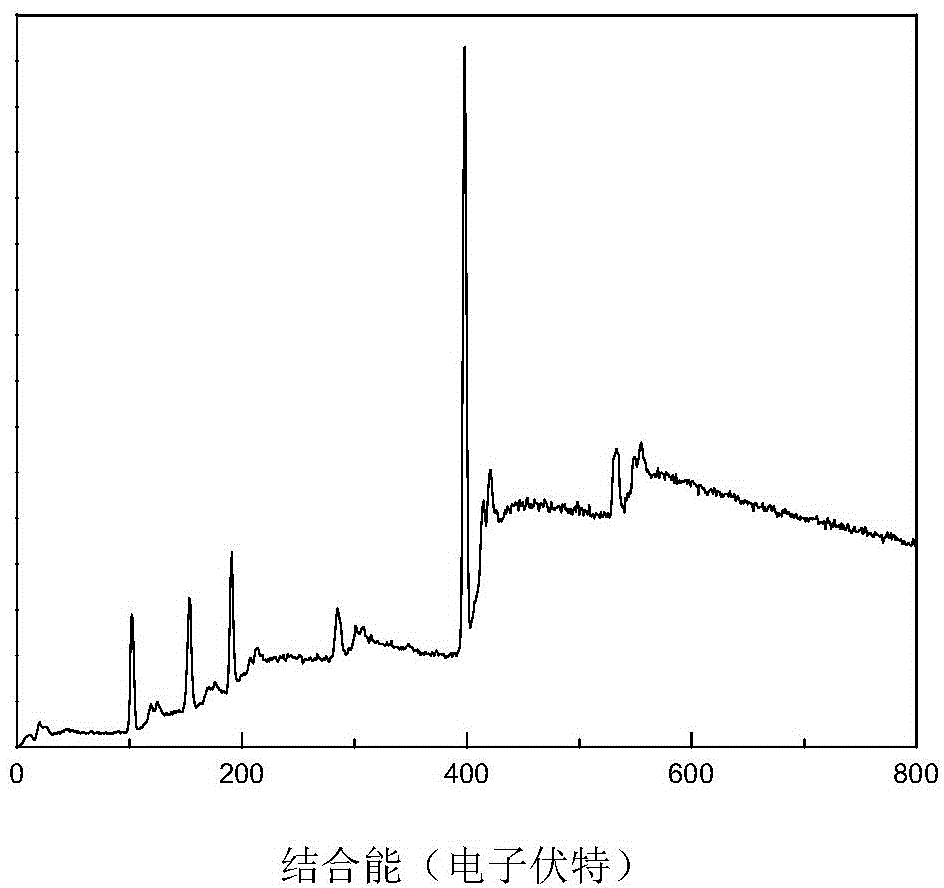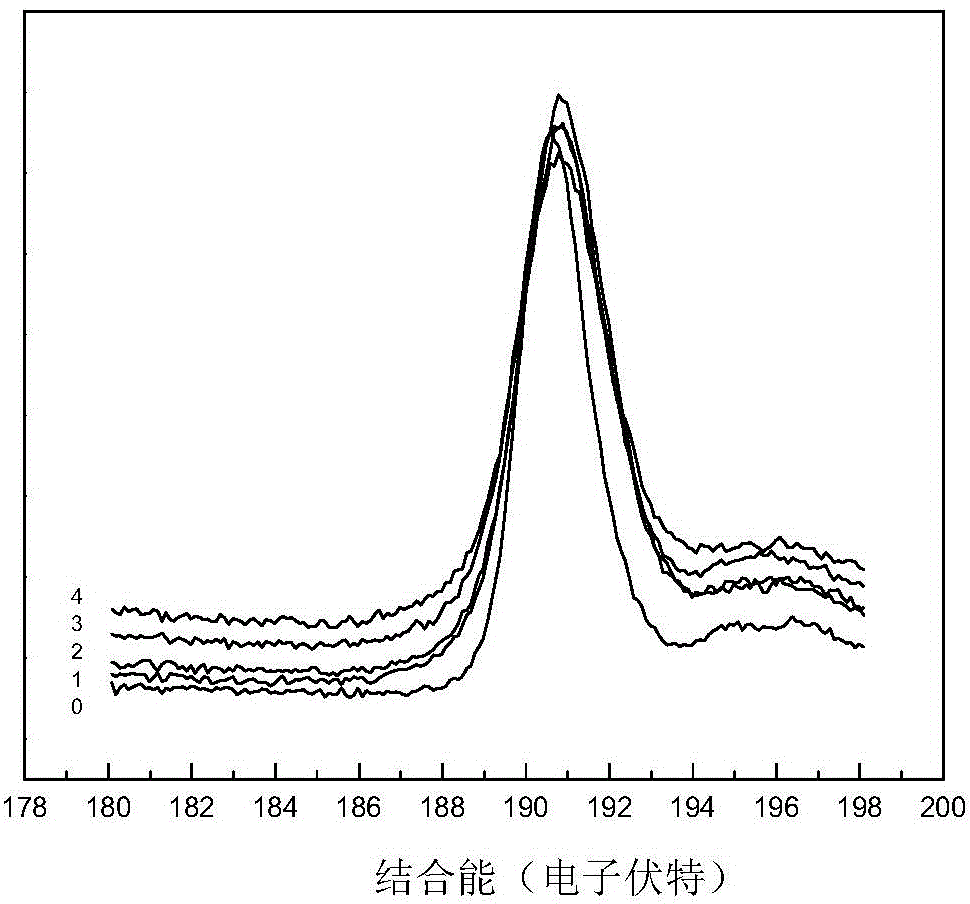Preparation method of SiBN fiber
A fiber and decarbonization technology, which is applied in the direction of fiber chemical characteristics, rayon chemical post-treatment, inorganic raw material rayon, etc., can solve the problems of the negative influence of the spinnability of the precursor, the damage of the fibril structure, and the low content of B elements. , to achieve the effect of improving mechanical properties, improving stability and high activity
- Summary
- Abstract
- Description
- Claims
- Application Information
AI Technical Summary
Problems solved by technology
Method used
Image
Examples
Embodiment 1
[0037]Put polycarbosilane non-melting fibers in the decarburization-nitriding system, vacuumize, then replace the gas in the system with nitrogen or argon to normal pressure, repeat at least three times; feed high-purity ammonia, heat up, and heat up system: Raise the temperature to 500°C in 2 hours, raise the temperature to 700°C at 0.95°C / min, keep it for 0.5h, raise the temperature to 800°C in 1h, and keep it for 2h. Cool down to room temperature with nitrogen / argon to obtain highly active Si-N fibers; raise the temperature to 400°C for 2 hours, feed borane into the decarburization-nitridation system for 24 hours, and cool to room temperature with nitrogen / argon; Enter high-purity ammonia gas, raise the temperature, and raise the temperature to 1350°C in 6 hours, and keep it warm for 1-2 hours. Cool to room temperature with nitrogen / argon gas. Serve.
[0038] figure 1 X-ray photoelectron energy map (XPS) for the prepared SiBN fiber. The peak at 100.5 electron volts (eV) ...
Embodiment 2
[0041] Put polycarbosilane non-melting fibers in the decarburization-nitriding system, vacuumize, then replace the gas in the system with nitrogen or argon to normal pressure, repeat at least three times; feed high-purity ammonia, heat up, and heat up system: Raise the temperature to 500°C in 2 hours, then raise the temperature to 700°C at 0.90°C / min, keep it for 0.5h, raise the temperature to 1000°C in 3 hours, and keep it for 1h. Cool down to room temperature with nitrogen / argon to obtain highly active Si-N fibers; raise the temperature to 450°C for 2 hours, pass dimethylborane into the decarburization-nitridation system for 36 hours, and cool with nitrogen / argon to Room temperature; Introduce high-purity ammonia gas, raise the temperature, raise the temperature to 1400°C for 6 hours, and keep it warm for 1 hour. Cool to room temperature with nitrogen / argon gas. Serve.
[0042] The X-photoelectron spectrum and radial B element X-ray photoelectron spectrum of the prepared Si...
PUM
| Property | Measurement | Unit |
|---|---|---|
| strength | aaaaa | aaaaa |
| elastic modulus | aaaaa | aaaaa |
| strength | aaaaa | aaaaa |
Abstract
Description
Claims
Application Information
 Login to View More
Login to View More - R&D
- Intellectual Property
- Life Sciences
- Materials
- Tech Scout
- Unparalleled Data Quality
- Higher Quality Content
- 60% Fewer Hallucinations
Browse by: Latest US Patents, China's latest patents, Technical Efficacy Thesaurus, Application Domain, Technology Topic, Popular Technical Reports.
© 2025 PatSnap. All rights reserved.Legal|Privacy policy|Modern Slavery Act Transparency Statement|Sitemap|About US| Contact US: help@patsnap.com


